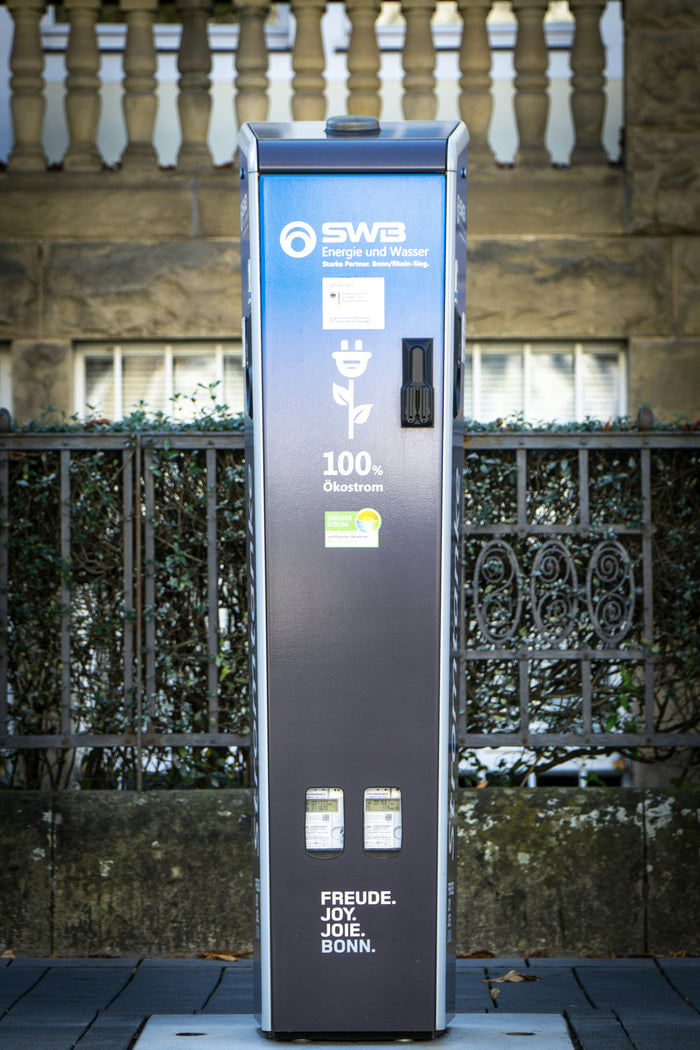How Philadelphia Residents Use Electrical Panel Upgrades to Save on Energy Bills
- Introduction: Lower Bills Start at Your Electrical Panel
- Understanding the Electrical Panel’s Role in Energy Use
- Seven Ways Panel Upgrades Drive Energy Savings in Philadelphia
- Philadelphia Housing Realities: Where the Savings Hide
- Practical, Dollar-Focused Examples
- What to Expect During a Panel Upgrade
- Smart Panels: Turning Data into Lower Bills
- FAQs for Philadelphia & Pennsylvania Homeowners
- Action Plan: Start Saving This Season
- Conclusion
Introduction: Lower Bills Start at Your Electrical Panel
For many Philadelphia homeowners, saving on electricity begins with switching bulbs or unplugging idle gadgets. Those steps help-but the biggest, most sustainable savings often start deeper, at the heart of your home’s power distribution: the electrical panel. Upgrading a dated panel can unlock efficiency you can’t achieve with small fixes alone, smoothing power delivery, reducing waste, and enabling modern, energy-saving technologies from heat pumps to smart thermostats and EV chargers.
In neighborhoods across Pennsylvania-from historic rowhomes in South Philly to post-war twins in Northeast and townhouses across the suburbs-residents are learning that a properly sized, modern, and well-configured panel is the foundation of real energy optimization. This long-form guide explains how electrical panel upgrades lead to lower energy bills, what to watch for in older homes, how the upgrade process works, and why partnering with a licensed pro pays back month after month.
Understanding the Electrical Panel’s Role in Energy Use
What Your Panel Actually Does
Your panel (sometimes called a “breaker box” or “service panel”) is the traffic manager for electricity in your home. It routes power to each circuit and uses breakers to prevent overloads. In a modern, efficient home, the panel does far more than pass electricity along: it balances loads, supports dedicated circuits for large, efficient appliances, and integrates with protective devices like GFCI and surge protection to keep equipment healthy and running at peak efficiency.
Why Old Panels Raise Bills
Outdated panels-especially undersized 60A or 100A services-struggle with today’s loads. The results include voltage drops, nuisance trips, and heat losses at weak connections. Those issues translate to inefficiency in motors (HVAC compressors, refrigerators, sump pumps), shorter equipment life, and “phantom” usage spikes when devices repeatedly restart. Over a year, that waste adds up on your bill.
Fuse Boxes vs. Breaker Panels vs. Smart Panels
- Fuse boxes: common in older Philadelphia homes; limited capacity and no modern protections-often a bottleneck for efficiency upgrades.
- Standard breaker panels: safer and easier to reset; can be efficient if sized correctly and paired with dedicated circuits.
- Smart electrical panels: add real-time monitoring, load shedding, and circuit-level insights-powerful tools for cutting consumption.
Seven Ways Panel Upgrades Drive Energy Savings in Philadelphia
1) Right-Sizing the Service for Modern Loads
Upgrading from 60A/100A to 200A service (or adding a subpanel) lets your HVAC, induction cooking, heat pump water heaters, and EV chargers run without starving other circuits. With proper capacity, motors operate in their sweet spot-drawing less current to do the same work, which helps to lower kWh usage and reduce peak-demand spikes.
2) Dedicated Circuits for High-Efficiency Appliances
Energy-efficient appliances still need clean, stable power. A panel upgrade is the perfect moment to add dedicated circuits for HVAC, refrigerators, freezers, and laundry. Dedicated runs reduce voltage sag and heat at connections, improving appliance efficiency and longevity-two big money savers over time.
3) Circuit Balancing and Load Management
Professional electricians map your usage and balance loads across phases, minimizing losses and avoiding hot spots. In smart panels, automated load shedding can temporarily pause non-critical circuits when EV charging or the oven ramps up, keeping you within efficient operating ranges and preventing expensive service upgrades you may not need yet.
4) Fewer Nuisance Trips, Fewer Inefficient Restarts
Frequent breaker trips force compressors and motors to restart under stress-an energy-intensive event. A correctly sized, modern panel with quality breakers reduces restart cycles and the waste associated with them, which can noticeably improve monthly bills during summer cooling or winter heating peaks.
5) Smart Metering and Circuit-Level Insights
With a smart electrical panel, homeowners in Philadelphia can see, in real time, which circuits consume the most energy. Identifying an inefficient dehumidifier in the basement or a faulty garage fridge can yield immediate, easy wins-often shaving 5–15% off household usage just by addressing the top offenders.
6) Enabling High-ROI Upgrades (Heat Pumps, Induction, EV)
Many high-ROI energy upgrades require new circuits and proper service capacity. A panel upgrade is the gateway to heat pump HVAC, heat pump water heaters, induction cooktops, and EV home charging-each of which can reduce long-term energy costs when installed on well-designed electrical infrastructure.
7) Healthier Equipment = Lower Lifetime Energy
Stable voltage and cooler connections reduce resistance losses and keep equipment in top condition. Efficient equipment draws less power to deliver the same comfort, leading to lower lifetime energy consumption and fewer expensive replacements.
Philadelphia Housing Realities: Where the Savings Hide
Historic Rowhomes and Post-War Twins
Many homes in South Philly, Brewerytown, Fishtown, and Northeast still run panels and branch circuits sized for lighter, older loads. Adding window ACs, space heaters, or modern kitchen suites often pushes systems past their design limits-driving up costs. Upgrades that add capacity and new home runs for kitchens, laundry, and HVAC typically deliver the best savings.
Basements, Dampness, and Dehumidifiers
Philadelphia basements often rely on dehumidifiers that run inefficiently on shared, sagging circuits. A dedicated, correctly rated circuit combined with smart control (timers or humidity setpoints) can reduce runtime and energy draw dramatically-one of the fastest paybacks after a panel upgrade.
Rowhouse Kitchens and Electric Ranges
Renovated kitchens frequently need upgraded 20A small-appliance circuits, a proper 240V feed for induction, and AFCI/GFCI protection. Right-sizing these circuits at the panel reduces nuisance trips and prevents energy-wasting voltage dips during meal prep.
Common Hidden Issues We Find
- Double-tapped breakers creating heat and efficiency losses.
- Undersized neutrals on multi-wire branch circuits.
- Aging aluminum branch wiring with tired terminations.
- Unlabeled panels that hide problematic shared circuits.
Practical, Dollar-Focused Examples
Case 1: West Philadelphia Heat Pump Conversion
A family converted from window AC units and a resistance heater to a high-efficiency heat pump. Their old 100A panel had no spare capacity and caused frequent trips. After a 200A panel upgrade with a dedicated HVAC circuit and whole-home surge protection, their summer kWh dropped, and winter heating efficiency improved-cutting annual electricity costs by a meaningful margin while boosting comfort.
Case 2: South Philly Basement Dehumidification
A persistent damp basement kept a dehumidifier running nonstop on a shared lighting circuit. Post-upgrade, we added a dedicated circuit and a smart controller tied to the panel’s monitoring. Runtime fell substantially, shaving monthly bills and reducing wear on the unit.
Case 3: Northeast Philadelphia Induction + EV
A homeowner wanted an induction cooktop and a Level-2 EV charger. The panel upgrade enabled both without overloading the system. Smart scheduling shifted EV charging to off-peak hours, lowering costs, while induction’s precision cut cooking time and wasted heat.
What to Expect During a Panel Upgrade
Step-by-Step Overview
- Assessment & Load Calculation: We evaluate your current usage, future plans (HVAC, EV, appliances), and code requirements.
- Design & Permitting: We size the service (often 200A), plan dedicated circuits, and secure permits in Pennsylvania jurisdictions.
- Installation: We replace the panel, re-terminate conductors, add labeling, and tidy cable management for optimal airflow and safety.
- Protection & Testing: We add GFCI/AFCI where required, integrate surge protection, and verify performance under load.
- Optimization: If using a smart panel, we configure circuit-level monitoring and load shedding rules to minimize bills.
Timeline and Disruption
Most Philadelphia upgrades complete in a day once permits are in place. Power is typically off for several hours, with advance scheduling to minimize disruption. We keep spaces clean and coordinate inspection promptly.
Safety and Compliance
All work follows current NEC requirements and local inspection standards. Proper grounding and bonding, correct breaker types, and accurate labeling aren’t just compliance items-they are critical to efficient, reliable operation.
Smart Panels: Turning Data into Lower Bills
Real-Time Visibility
A smart panel lets you see which circuits spike during cooking, laundry, or EV charging. With that data, you can shift usage, set schedules, and identify energy hogs-often achieving quick, low-effort savings.
Automations that Pay Back
Load shedding rules can pause non-critical circuits while the oven preheats or the dryer runs. This avoids peak surges and keeps overall consumption smoother-beneficial for both energy costs and equipment lifespan.
Simple Wins Our Clients Love
- Scheduling EV charging to overnight windows.
- Limiting space heater usage via monitored circuits.
- Detecting a failing sump pump before it skyrockets usage.
- Spotting a second, forgotten refrigerator drawing heavy load.
FAQs for Philadelphia & Pennsylvania Homeowners
Will a panel upgrade automatically lower my bill?
A panel upgrade enables lower bills by fixing inefficiencies and allowing better equipment and control. Pairing the upgrade with smart habits, efficient appliances, and (optionally) a smart panel typically yields the best savings.
Do I need 200A service?
Not always, but it’s common in homes planning EV charging, induction cooking, or heat pumps. A proper load calculation determines the right size for your situation.
Are there rebates or incentives?
Programs vary by time and locality in Pennsylvania. Some energy-efficiency and electrification upgrades may qualify. We’ll flag potential options during your assessment so you can make an informed decision.
How long does it take?
Once permits are ready, most panel replacements take one working day, with power interruptions planned and communicated in advance.
Action Plan: Start Saving This Season
Quick Checklist
- Scan for warning signs: hot panel cover, frequent trips, flicker when heavy loads start.
- List upcoming upgrades: HVAC, water heater, induction, EV, finished basement.
- Book a licensed electrician for a load calculation and panel evaluation.
- Decide whether smart monitoring fits your goals.
- Bundle work (panel + dedicated circuits + surge protection) to cut overall costs and downtime.
Pro Tip
If you’re remodeling a kitchen or finishing a basement in Philadelphia, address the panel first. It prevents rework, streamlines inspections, and ensures new spaces run efficiently from day one.
Conclusion
Philadelphia homeowners deserve safe, efficient, and modern electrical systems. Upgrading your electrical panel is one of the most reliable ways to reduce wasted energy, stabilize major appliances, and unlock long-term savings-while preparing your home for the future of electrification.
At Myrodash, we design and install panel solutions tailored to the unique realities of Pennsylvania homes-historic charm, tight spaces, mixed loads, and big plans for smarter living. We’ll right-size your service, balance your circuits, and (if you choose) enable circuit-level insights that make saving simple.
Ready to cut energy waste and lower your monthly bills? Call us at +1 (267) 629-4548 or reach out through our contact page to schedule your assessment. Let’s build an electrical foundation that pays you back-month after month.



